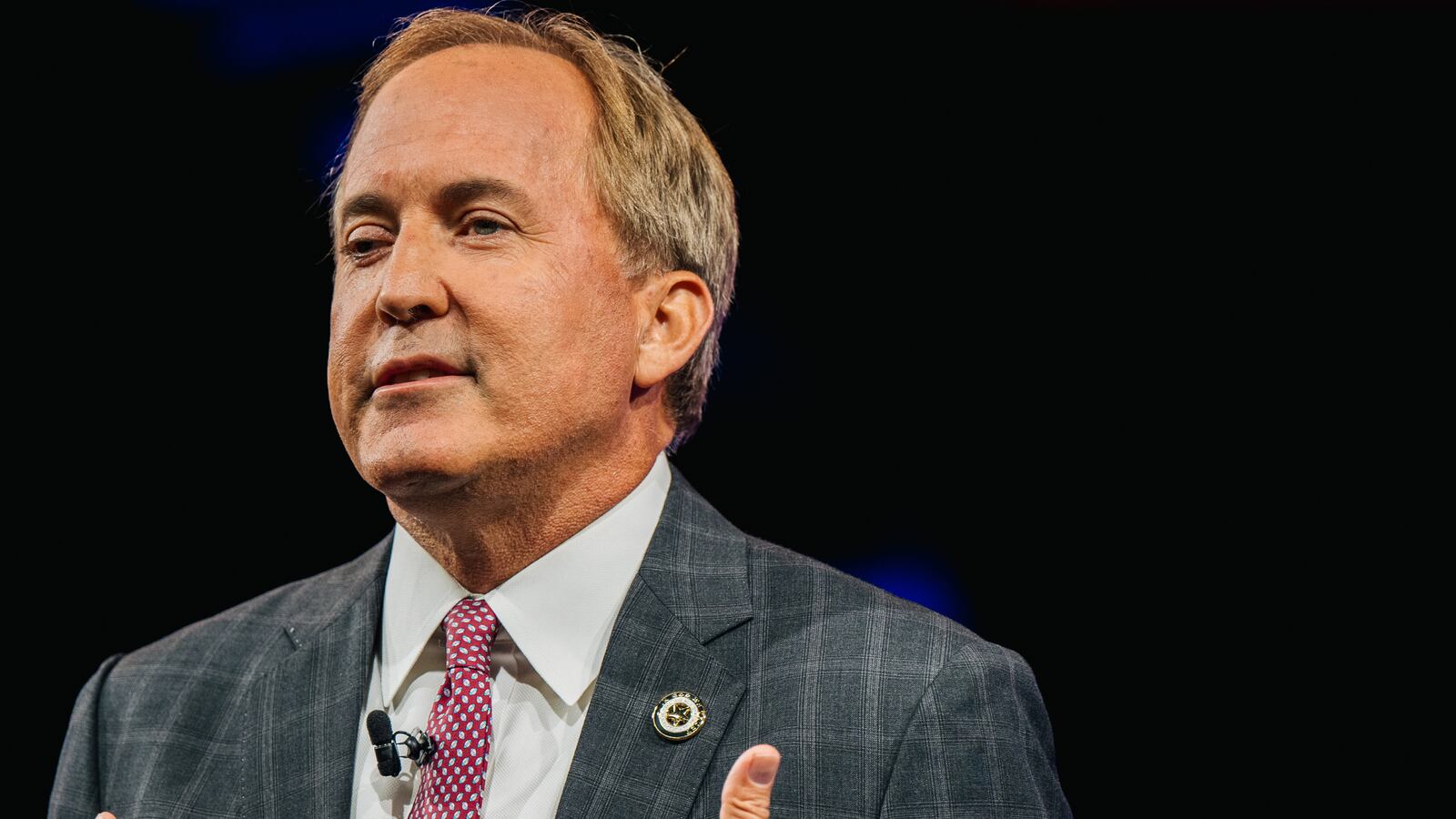Texas Attorney General Ken Paxton announced Thursday that he is suing Pfizer, accusing the drugmaker of emotionally blackmailing the American public into getting the COVID-19 vaccine, all the while lying about the jab’s effectiveness and intimidating so-called “truth-tellers.”
His 54-page lawsuit claims the pharmaceutical giant ran afoul of the Texas Deceptive Trade Practices Act after making “false, deceptive, and misleading acts and practices by making unsupported claims” about its vaccine. Pfizer marketed its shots using misleading statistics, it alleges, seeking to “intimidate and silence” anyone who questioned that they were 95 percent effective.
A press release from Paxton’s office also complains that Pfizer “embarked on a campaign to intimidate the public into getting the vaccine as a necessary measure to protect their loved ones.” Paxton has long been a vocal critic of COVID-19 safety mandates.
“We are pursuing justice for the people of Texas, many of whom were coerced by tyrannical vaccine mandates to take a defective product sold by lies,” Paxton said in a statement.
“The facts are clear. Pfizer did not tell the truth about their COVID-19 vaccines,” he continued. “Whereas the Biden Administration weaponized the pandemic to force illegal public health decrees on the public and enrich pharmaceutical companies, I will use every tool I have to protect our citizens who were misled and harmed by Pfizer’s actions.”
The complaint asks for $10,000 in civil penalties for each of five alleged violations of the Texas Deceptive Trade Practices Act, along with additional awards of restitution. The total sum equals more than $10 million. The state is also demanding the court permanently block Pfizer from making the claims about their vaccine.
Pfizer denied the allegations in a statement, saying the case had “no merit.”
“Pfizer is deeply committed to the well-being of the patients it serves and has no higher priority than the safety and effectiveness of its treatments and vaccines,” it said, according to The Hill. The statement noted that the company’s vaccine had been administered to more than 1.5 billion people with a “favorable safety profile in all age groups,” helping to protect against hospitalization and death.
“The representations made by the company about its COVID-19 vaccine have been accurate and science-based,” Pfizer said.
The lawsuit, filed in a Texas state district court, takes on a scolding tone at times, claiming that Pfizer was in the wrong for not solving the pandemic quickly enough. “Americans were given the impression that Pfizer’s vaccine would end the coronavirus pandemic,” it states. “Contrary to Pfizer’s public statements, however, the pandemic did not end; it got worse.”
Health data at both the federal and state level fails to shore up many of the lawsuit’s claims. Infections and deaths from the virus fell substantially beginning in early 2022, around that time that an estimated 75 percent of the U.S. population had gotten at least one dose of the vaccine. By December, around 267,000 people were estimated to have died of the virus that year, as compared to more than 475,000 deaths in 2021 and 350,000 in 2020. The Texas Department of State Health Services has calculated that the COVID death rate for fully vaccinated Texans remains 12 times lower than that of the unvaccinated.
Paxton’s suit is the culmination of an inquiry launched by the attorney general in May, probing the claims of three major drug companies about their respective vaccines’ efficacy. His office said in a statement at the time that he was “committed to discovering the full scope of decision-making behind pandemic interventions forced on the public,” suggesting that political pressure or the drive to make a quick buck off the pandemic may have been motivating factors.
The investigation kicked off 10 days before the pandemic was officially declared over. Just over two weeks later, the Texas House of Representatives voted to impeach Paxton for abuse of office, resulting in his suspension while proceedings played out. In mid-September, he was easily acquitted after a two-week trial and reinstated, having emerged from the controversy with few scratches to show for it.






